Here’s why the Gateway of India is slated to drown by 2070, if the government of India doesn’t act fast
Fact: If global warming continues on its present trajectory of four degree centigrade, the Gateway of India will be submerged by 2070. If we do not act fast, rising sea levels will claim land inhabited by more than 600 million people – entire coastal cities like Mumbai, Chennai, and Kolkata are slated to drown in 50–70 years. While some of us may still have a chance to alter our ways and right our wrongs, Maldives has reached the point of no return and will drown in 50 years. India will be presenting a plan at the UN Paris Climate Change Summit.
Also a fact: This policy that India is proposing to adopt, in its current form, is not nearly adequate to lock horns with the hellish ordeal we have called upon ourselves.
The earth’s desperate pleas for help had been falling on deaf ears. However, a group of young individuals in Mumbai decided to act only to be countered by startling reactions ranging from suspicion, apathy, and Mumbai’s infamous red tapism.
“Even as we saw older individuals lending their ears to this cause, we didn’t have people from our generation who showed solidarity towards it, not realising that this phenomenon will deeply affect their lives when they will be in their prime,” says Rayyan Sheikh, one of the initiators of Mumbai’s first, one of a kind, digital protest against our recklessness towards sustainable practices.
Establishing a collective named Fatsmeagol, Rayyan Shaikh, Ishita Shelat, and Kirk Lobo contacted Avaaz.org, a New York-based organisation fighting for the same cause that was to speak at the summit, to pledge the city’s support. Avaaz was organising a global march on the subject, it turns out, and over 200 worldwide cities were to march just a day before the UN Paris Summit, to exert pressure on governments to make their guidelines for combating climate change more ambitious and effectual.
“As the Mumbai wing of this movement, our aim is to urge the Government of India to push for a long-term deal in Paris that lets our planet transition to 100% clean energy. We wanted India to emerge as climate leaders,” says Rayyan, adding, “It was difficult for us as a country to do, owing to a very deeply rooted problem in our mindsets” – which he calls the “They did it first” syndrome.
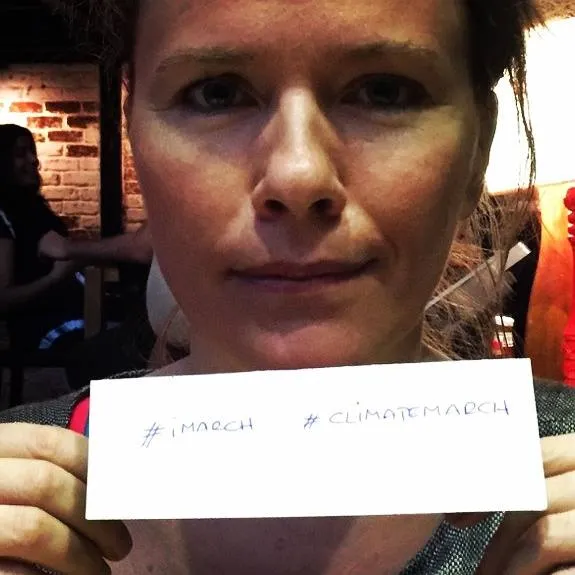
“The argument of developing countries like India and China has been that western countries developed leaps and bounds using techniques and technology which created massive carbon emissions. And now, India and China feel that it is their turn to develop using the same easily available, cheap, and unfortunately for us, exhaustible sources of energy. So when the needle is shifting to the global adoption of sustainable techniques, developing countries resort to a blame-game, saying if western countries were allowed to develop leaving a carbon footprint, they must be allowed to have their share of development too. What they do not understand, is that at the end of this argument, if they win – the mother earth and the human race looses.”
We have already released enough carbon into the atmosphere to adversely affect the climate. But what we can do now is take urgent steps to save ourselves from total annihilation. The average temperature on the planet will definitely rise, owing to our reckless past. However, if we act fast to restrict this rise by two degrees centigrade, we may have a fighting chance.
Maldives, unfortunately, has already reached the point of no return, and cannot be saved from a sticky end. The ice caps have melted enough to drown the whole city 50 years down the line. The government has already started taking desperate measures like erecting a $95 million wall around its capital city of Mali. However, they are prepared to move the entire population inland, to a different country, and India has agreed to take them in as environmental refugees. But the size of this group will be no small number, and will affect the economic and cultural dynamics of our nation.
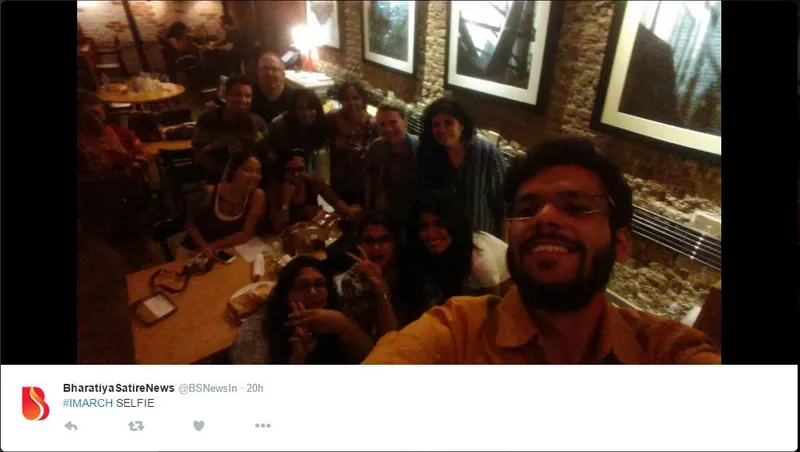
Keeping in mind the above, Rayyan and his team are challenging the Modi government agenda that is to be presented at the summit this week, and addressing the loopholes in it with the following demands.
- More funding for projects involving renewable and sustainable energy, like solar energy.
- Provide companies that are environmentally conscious and using sustainable forms of energy with higher subsidies – around 25% and above.
- Impose heavy fines on companies, public or private, that use fossil fuels. The revenue from these fines should be used to start building infrastructure to deal with rise in ocean levels.
- Restrict and prohibit building of infrastructure that adversely affects the climate in the short and long-term.
- Increase number of CNG stations and provide subsidiaries for electric cars manufacturers and consumers.
- Stricter implementation of pre-existing environment-related laws and policies.
- Provide sufficient access to water and food for farmers. Climate change affects crop/produce amount.
- Commitment to heavy reduction of carbon emissions.
“We are not asking for much, we are just asking for a future for us and for our children,” says Rayyan, adding, “If we do not act now, more than 100 million additional people will be in poverty by 2030 due to climate change –not war, not natural calamities, but a slowly killing climate change. This would have catastrophic consequences because there would be drought and colossal migration problems, which will in turn cause war.”
Organising something on-ground in Mumbai would have entailed a lot of bureaucratic procedures for permissions, significant costs, over and above convincing an indifferent population to leave their four walls to march on a Sunday afternoon. Thus, Fatsmeagol wanted to turn it into an event, rather than a march, and decided to do it completely digitally, which is a rather unique format.
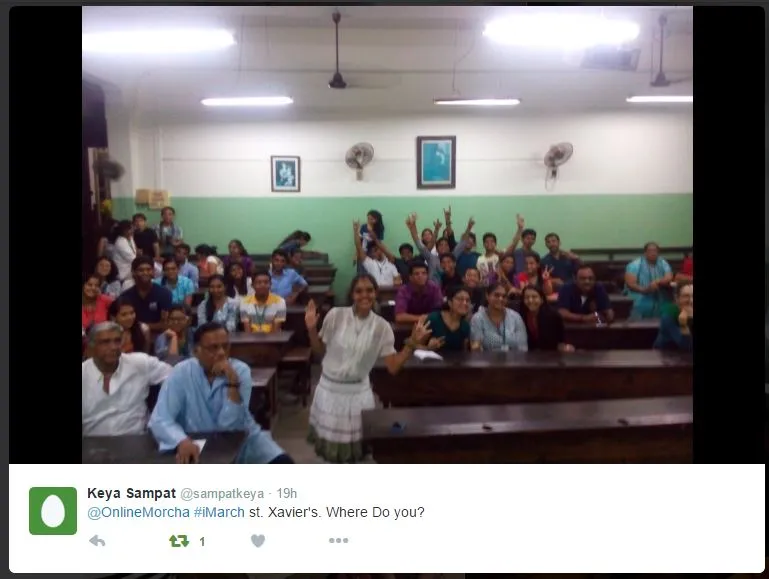
Creating content which amounts to an hour worth of songs, dance, videos, tasks, ads, etc., Fatsmeagol urged marchers to simply log on, share the content, and start a conversation around the topic. With over 1,100 registered users, their posts recorded a reach of over six hundred thousand. Besides, many institutions, cafes and youth haunts pledged their support by volunteering their premises for free for marchers to collect and have discourse over the matter. St. Xavier’s College in Mumbai organised a march, with performances, that saw a footfall of nearly hundred fervent protesters. Other pockets like The Little Door, The Hive, and Cafe Zoe all witnessed 50–60 individuals each, collecting to learn about this phenomenon from the organisers, and deliberate upon what can be done at an individual level to keep this cause going.
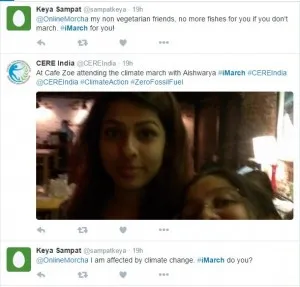
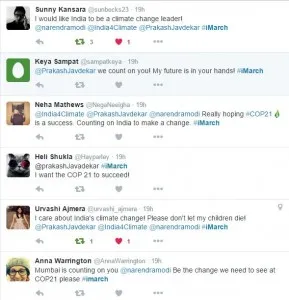
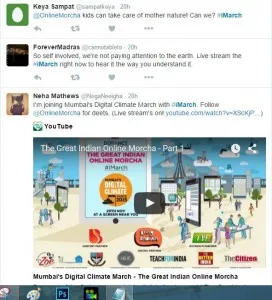
Many artists and creative groups have also come forth to lend their hearts, minds and voices to pump life into this movement, in their own unique styles. Being Indian came out with a hilarious yet hard-hitting visual take on this issue, titled Kahe Ka Climate Change. Several other satirical videos will be rolled out by Bharatiya Satire News Here, and last but not the least, pop star Tejas Menon will sing to summarize the simmering discontent of the activists.
“Thanks to advancements and innovations, our country can develop without coal and oil. The Netherlands, Norway, and Copenhagen wish to go car-free and have only electric cars ply the roads despite being oil-rich countries. The government chooses to support the cause and grant subsidies to companies who are adopting sustainable techniques. India must follow suit. A big-bad corporation, such as Tata energy, will not change his mode of operation at the fundamental level if the government doesn’t exert pressure of them. And small entrepreneurs will not be able to provide clean energy like solar at cheap rates, if the government doesn’t grant them subsidies,” explains Rayyan.
“There needs to be a marketplace where we are given the right to choose between equally accessible and equally priced products, and only then can the onus and power be shifted upon the consumer, to control the dynamics of the market and choose to go green,” he concludes.







